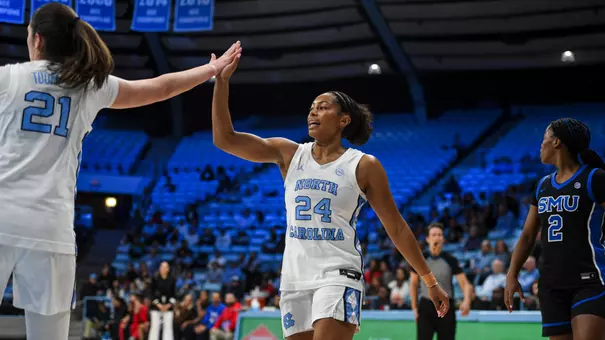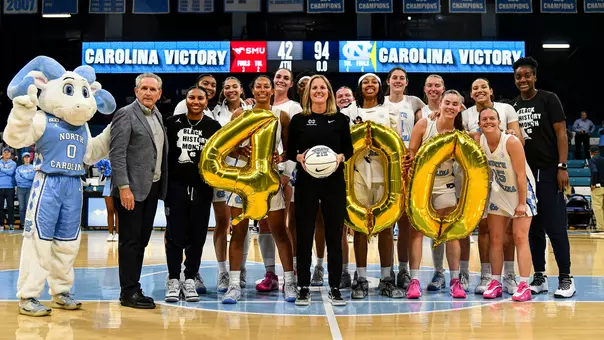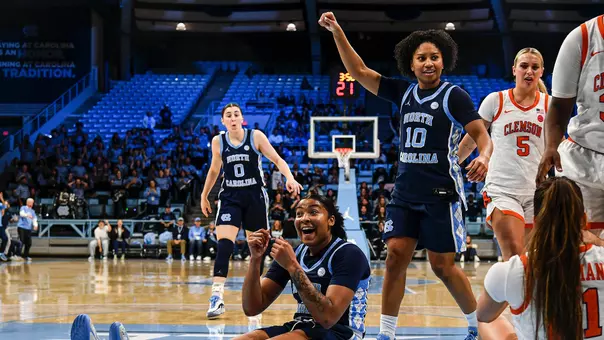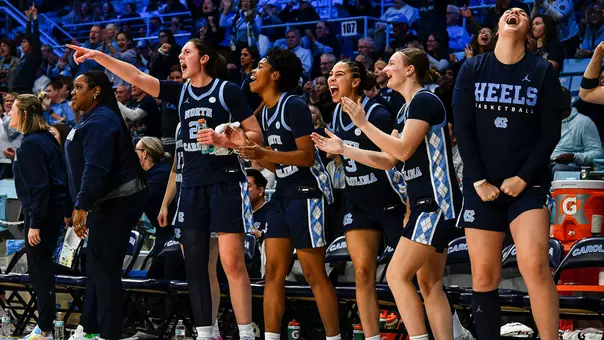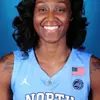University of North Carolina Athletics
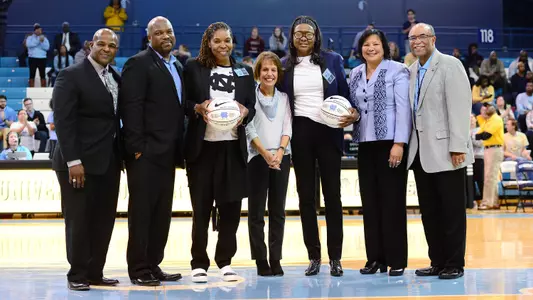
Carolina Recognizes African-American Pioneers
February 17, 2017 | Women's Basketball
The Tar Heel women's basketball program teamed up with the Carolina Black Caucus to host a tribute to Black History Month. The game was a platform to recognize African-American pioneers from the basketball program and the university community.
“What an honor it was to have tremendous representation from both the academic and athletic world come together at our game,” said Carolina head coach Sylvia Hatchell. “They're truly African-American female pioneers and we're very proud of them and owe them a debt of gratitude.”
O.J. McGhee, chair of the Carolina Black Caucus, echoed similar thoughts on how proud we are of these pioneers.
“There's such a rich history of African American contributions to our institution and it was so great to see it on display. So many UNC alumni, faculty, staff, and students felt a sense of pride as we paid tribute to our Black pioneers.
“I can't imagine the difficulties and isolation that they had to endure being the first. These women birthed the diversity that we see on campus today in athletics and academics. We wanted them to know how proud we are to stand on their shoulders.”
Karen L. Parker, was the first African-American woman undergraduate to attend the University of North Carolina. Parker majored in journalism, and served as editor of the UNC Journalist, the School of Journalism's newspaper in 1964. Upon graduation in 1965, Parker began a career in newspapers for the Grand Rapids (Mich.) Press. She also worked for the Los Angeles Times and the Winston-Salem Journal.
Hortense K. McClinton, was the first African-American professor hired in 1966 by North Carolina, at the School of Social Work. McClinton was also the first African-American professional social worker to be employed in several public, private and governmental social agencies, including the Durham County Department of Social Services (DSS) and the Veteran's Administration Hospital (Durham, N.C.).
Kathy Crawford, Henrietta Walls and Deanna Thomas were the first African-American female scholarship athletes at North Carolina.
Crawford offered up her thoughts upon looking back at her time in Chapel Hill.
“I discovered basketball at age nine on the playgrounds of New York and it quickly became my passion. At age 12, I decided I would go to college on a basketball scholarship, and after seeing Phil Ford play on television I chose to attend UNC.
“In the summer of 1979, along with two other African American women, we arrived on campus ready for this new adventure called "Blue Heaven.”
"I did not know at that time that we were the first. I had no idea. I now know that Coach Alley shielded and protected us from some things as she would later tell me of the death threats she received our first year. My experience at UNC was great. I made friends & sisters for life (Hoop-Phi) and also got a second Mom (Coach Alley), out of the deal!
Kathy graduated in December 1983 with a degree in radio,television & motion picture communications. Still in the record books here at UNC, Kathy did go on to play professional basketball overseas for 12 seasons. She is currently a public servant (fire fighter), an entrepreneur and business owner of KaiCei DJ/Sound services, All Classic Transportation Services and Anytime TV Media Streaming.
Here is Walls in her own words about basketball and Carolina.
“Gracing the court at UNC was an amazing experience. I can only recall the hard work and commitment that was instilled in us from Coach Jennifer Alley. She always had a way of applying the skills on and off the court into our daily lives and eventual future. I live by so many of those rules of engagement to this day, especially understanding the meaning of perseverance and following through. The sport taught me to never give up and to alway give 100%.
“We had a great relationship with our men's program and I can remember Coach Smith, Coach Williams, Worthy, Perkins, Jordan and others always offered us words of motivation for the big games. I wanted to go to Carolina because it offered me a chance to become a better student athlete and we formed bonds of friendship and family that continues to this day!
“I'm so glad I chose this program because all these years later and with Coach Hatchell and staff, it feel like home and I still love calling Carolina home. I am confident that all I have accomplished and will continue to do in life and career is because of the education and life lessons I learned being a student athlete at UNC.
“Being a Tar Heel continues to give me eternal bragging rights! Go Heels”
And also honored Thursday night was Rochelle Small, the first African-American woman to play varsity basketball for the Tar Heels.
Rochelle entered North Carolina as a freshmen in 1974 with the hope of playing tennis as she had done since the age of eight in her hometown of Wilmington N.C. She was a standout tennis team member at John T. Hoggard High School. Ironically, she did not know how to play basketball when she entered UNC because 4A high schools in North Carolina did not offer a girls basketball program.
In the early 1970's the racial culture at Carolina was not as welcoming for black students, and although the men's basketball team had long been integrated by Charlie Scott under the late legendary coach Dean Smith, the women's team had not integrated. The Black Student Movement (BSM) was intentional in changing this pattern as UNC was the only women's team in the ACC that did not have an African American player on its varsity team.
As a freshman Rochelle was approached by the BSM coach to play on his team in the University's intramural league, assuming that because of height and athleticism she could play basketball. She played on the BSM intramural team for two seasons where she learned how to play the game before dedicating her time and energy to play on the Junior Varsity team under coach Jeannie Jordan in 1976.
In 1977, a new varsity coach, Jennifer Alley from High Point University, became Carolina's varsity coach and with Coach Alley came a new attitude. Coach Jordan and the junior varsity and BSM teammates convinced Rochelle that she was good enough to tryout for the varsity team and in 1977 she was selected by Coach Alley to play on the team.
Rochelle was in her senior year and played for this one season although she had years of eligibility left. At this time there was not an WNBA or any future prospects for young women after playing at the undergraduate level. She elected to forgo her eligibility of varsity play at Carolina and graduated in 1978 before furthering her education and going on to graduate school at North Carolina. Rochelle was inspired and encouraged by her parents and sister, many fellow students, her sorority sisters and teammates to push forward. With their support and the help of coaches Jordan and Alley, Rochelle achieved this milestone.










